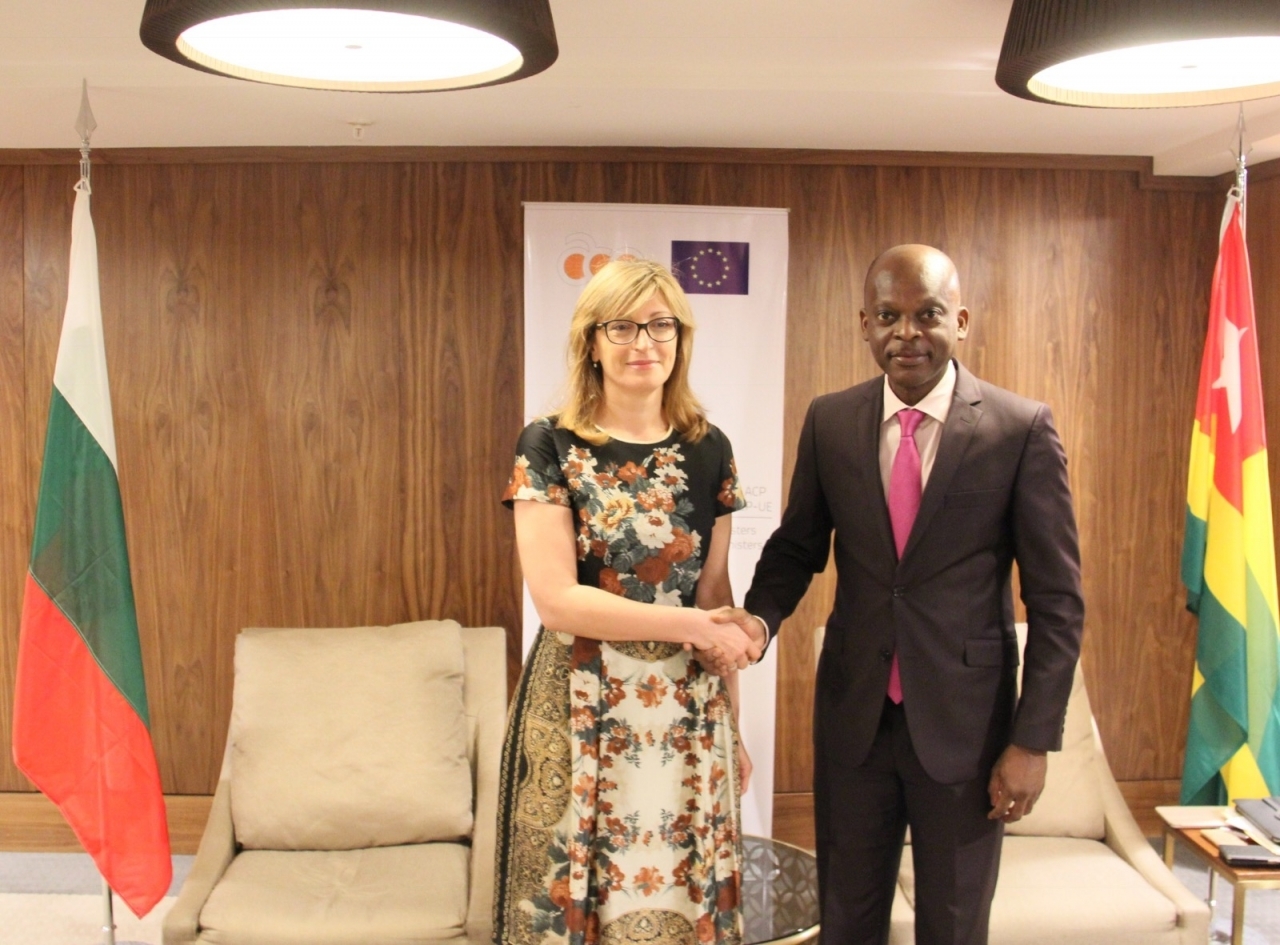Togo and Ethiopia Restart their Business Relations with Bulgaria
30 May 2018 News
Togo and Ethiopia are restarting their business relations with Bulgaria, and Bulgarian companies are invited to invest in the region. This was agreed between Bulgarian Deputy Prime Minister and Foreign Minister Ekaterina Zaharieva and her counterparts, the chief diplomats of Togo and Ethiopia.
She conferred with the ministers ahead of the opening of the 43rd Session of the Joint Council of Ministers of the European Union and the Africa, Caribbean, and Pacific Group of States (ACP), which will take place in Lomé, the capital of the Togolese Republic, over the next two days. The forum, which is attended by delegations of 79 States, will be co-chaired by Ekaterina Zaharieva because she heads the EU delegation in her capacity as President-in-Office of the Council of the European Union.
“Bulgaria can offer ample opportunities for joint business in mining, agriculture, high technologies and robotics, and the pharmaceutical industry,” Minister Zaharieva said.
“My focus is on economic diplomacy. I suggest that we organise meetings of our chambers of commerce and a business forum in Lomé,” said the Minister of Foreign Affairs, Cooperation and African Integration of the Togolese Republic, Prof. Robert Dussey. His country, which hosts the EU-ACP ministerial, occupies an area of 56,785 sq. km, and 65 per cent of its population of nearly 8 million is employed in agriculture. Yams, cassava, maize, rice, millet and sorghum are the traditional crops cultivated in Togo. Cotton, coffee and cocoa are the cash crops grown for export.
Phosphates are Togo’s top export commodity, as the country boasts the world’s richest deposits (with 81% mineral content), and the reserves of first-grade ore are estimated at some 260 million tonnes. Large deposits of limestone (some 200 million tonnes) have been discovered, too, and a cement and marble plant has been built to utilise them. Iron ore reserves approximate 1,000 million tonnes. Facilities for the processing of palm oil, coffee, flour and cotton have been built, as well as for making textiles, footwear and beverages. The trade and economic relations between Togo and Bulgaria are stagnant, even though Bulgarian State-owned enterprises used to carry out regular exports to the African country under socialism.
“The agreements between our two countries dating back to the time of socialism are, to put it mildly, obsolete: we need to update them,” said the Togolese Foreign Minister, Prof. Dussey. Minister Zaharieva familiarised him with the opportunities for the tuition of foreign students provided by Bulgarian universities. This is the first visit by a Bulgarian minister to the Togolese Republic since the establishment of diplomatic relations in 1974.
Within the framework of her visit, Deputy Prime Minister Zaharieva also conferred with her colleague of the Federal Democratic Republic of Ethiopia, Workneh Gebeyehu.
“Bulgaria and Ethiopia share a lot of history as socialist countries. You were our greatest friend in the socialist camp. I remember learning to drive on a Bulgarian tractor because your machines were manufactured in my country, too,” Minister Gebeyehu said. “After the fall of socialism in the two countries we must reactivate our relations at the requisite level. We need your know-how in high technologies, and we are ready to welcome any Bulgarian investors. We have huge consumption and idle labour force because of the steady population growth.” “Bulgaria can turn into Ethiopia’s gateway to the EU. We are good at high tech and business start-ups. One of the three Bulgarian embassies in sub-Saharan Africa is in Addis Ababa,” Minister Ekaterina Zaharieva said.
Until 1974 Bulgaria maintained good relations of cooperation with Ethiopia. Emperor Haile Selassie visited Bulgaria in 1967 and 1971. After the abolition of the monarchy in May 1974 and the period of domestic consolidation in 1974-1977, bilateral relations made vigorous progress. The intensity of political contacts increased, including at the highest level. Bilateral political visits at State level have not been exchanged with Ethiopia since 1991.

